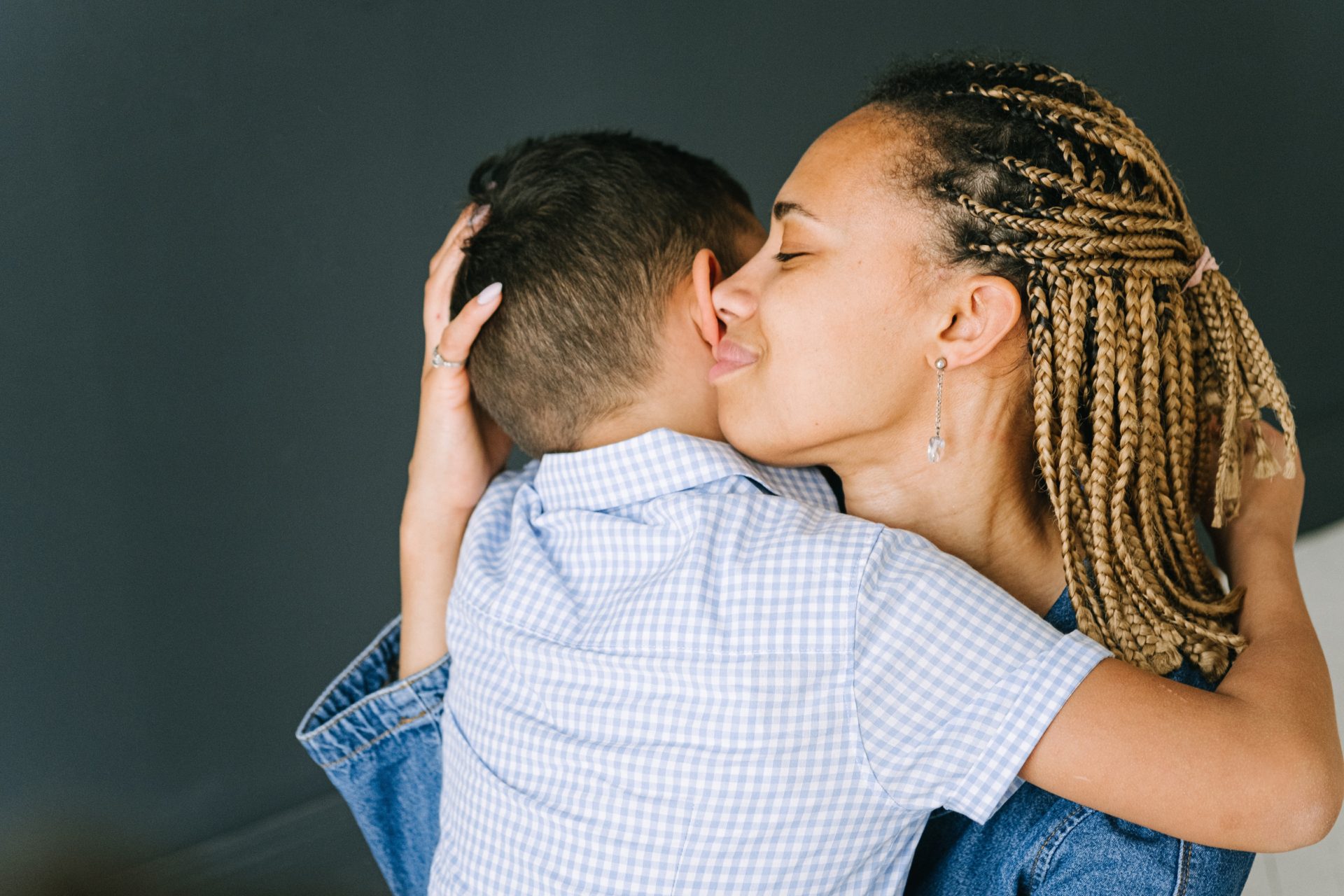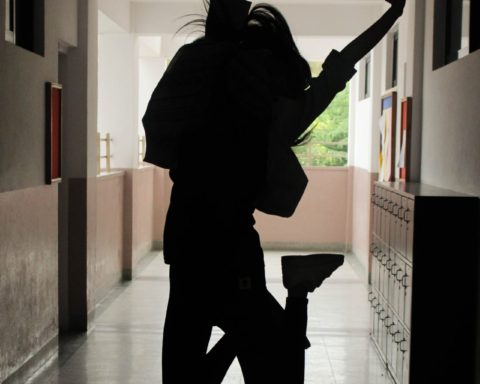Disclaimer: The advice shared in this post is not written by a medical professional and does not constitute medical advice.
There is nothing more heart-wrenching and more debilitating for a parent than to see your child struggle. A child suffering through anxiety can have a devastating effect on not only on the child but on the extended family.
Parenthood is a lonely street littered with a guilt café on every corner, ready to welcome you in for a session of self-pity. So, when it comes to something like anxiety, you can easily feel overwhelmed and alone, not knowing how to help your child with their anxiety.
Parents the world over have the perfect version of themselves, and their children, stored away in their minds’ eyes. So, when reality does not measure up to what we have envisioned for us or our children, it can leave us despondent.
When we have a child who suffers with anxiety, the image of the perfect child that we hold in our minds becomes disrupted. No one goes into parenthood thinking that their child will one day struggle with anxiety – or any other condition, for that matter. We want for our children the best that life has to offer, where they will be happy, successful and, more importantly, they will love who they are.
What is Anxiety?
According to Anxiety.org, “Anxiety is the mind and body’s reaction to stressful, dangerous, or unfamiliar situations. It’s the sense of uneasiness, distress, or dread you feel before a significant event. A certain level of anxiety helps us stay alert and aware, but for those suffering from an anxiety disorder, it feels far from normal – it can be completely debilitating.” There is a spectrum of anxiety often referred to as anxiety disorders.
According to Peter Muris, anxiety in children is quite common and is usually short lived. However, studies done over the last three decades have shown that this is only true for a minority of children. In fact, the cause of anxiety in children can be attributed to the culmination of environmental and biological sources. It has been argued that anxiety is connected to how a child manages fear and the experience of anxiety than it is about the specific things that trigger anxiety.
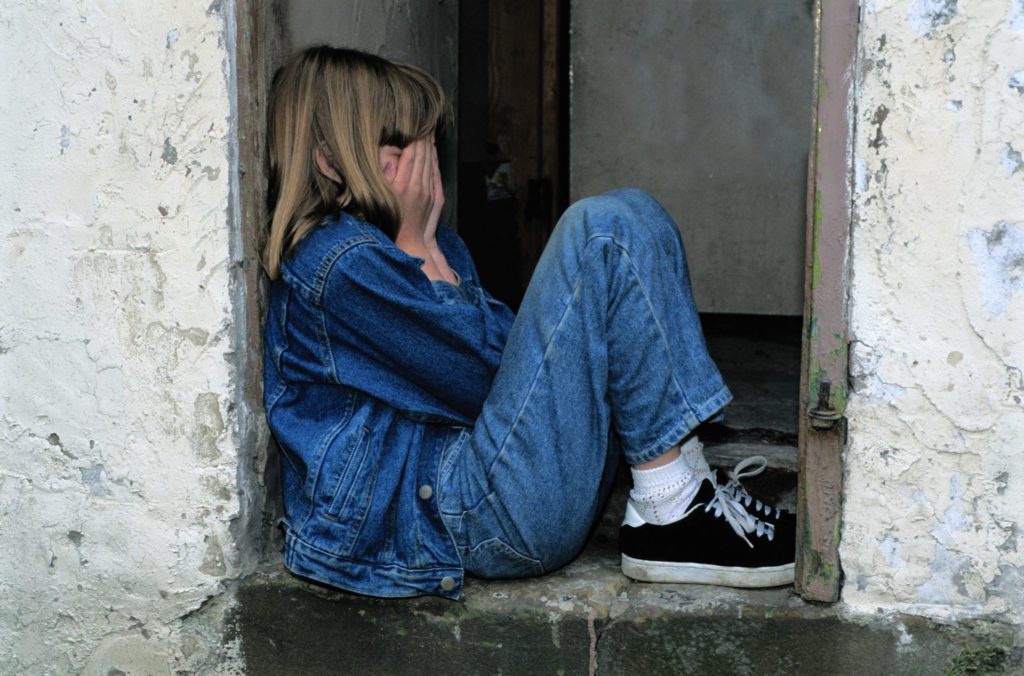
What is true in most cases where children suffer with anxiety is that it manifests itself as negative behaviours. These behaviours will differ from one child to the next and will change over time and in its intensity. Your response as the parent must be intentional and must be consistent.
The root cause of childhood anxiety is due to traumatising events and experiences. It is important to note that anxiety is treatable and, in many cases, can be overcome. There is no one-size-fits-all treatment, but there are a few common techniques and practices that can be employed to help your child cope.
We offer four of the most crucial steps to assist your child to manage their anxiety.
Make them feel safe
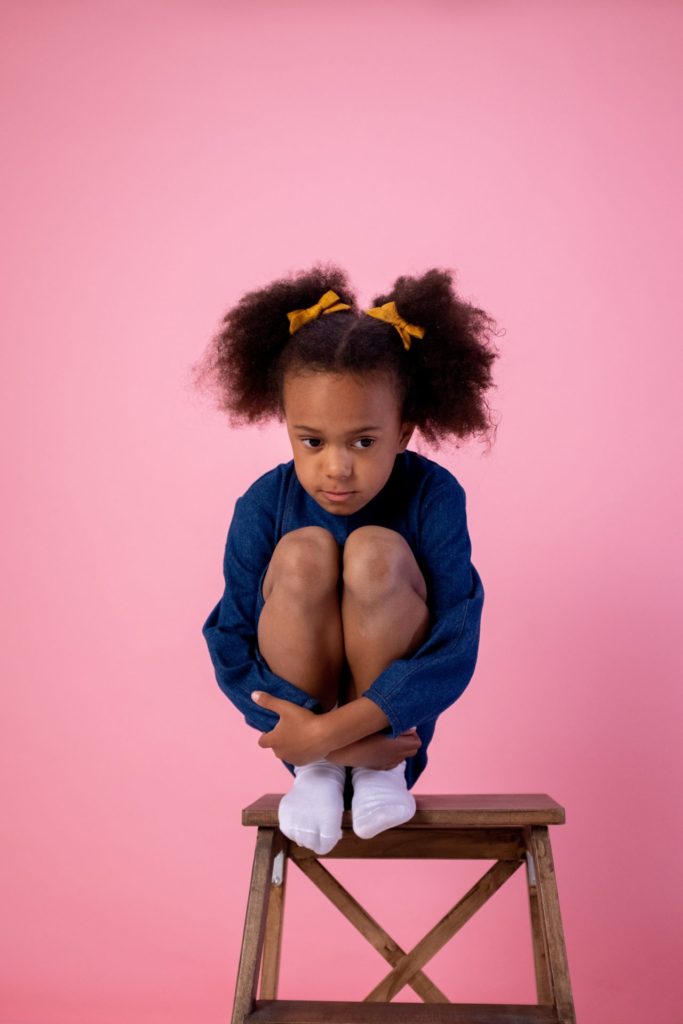
Children need to know that they are safe, loved and what they are going through may not be their fault. As parents, we must reinforce a feeling of safety and provide a soft landing when they need it. When they express what they are feeling, do not simply brush them off. Give your child the opportunity to feel heard and validated. Make them feel that even though they are going through this dark patch, that, together, you can deal with it confidently. The feeling of safety is paramount, because it challenges the perceived trauma and gives a sense of shared responsibility. This process must be a constant reinforcement and not just a once off.
Help them identify negative thoughts
Part of assisting your child is to help them identify the negative feelings and why it is that they are feeling them. This once again reinforces that you are listening to them. In doing so, you are also providing a mechanism for them to distinguish between perceived danger and real danger. Negative thoughts in children, like in adults, breaks down one’s self-esteem. Providing them with an exercise to challenge the negative thoughts can help build their confidence and slowly start changing the conversation in their own heads.
Teach them how to breathe
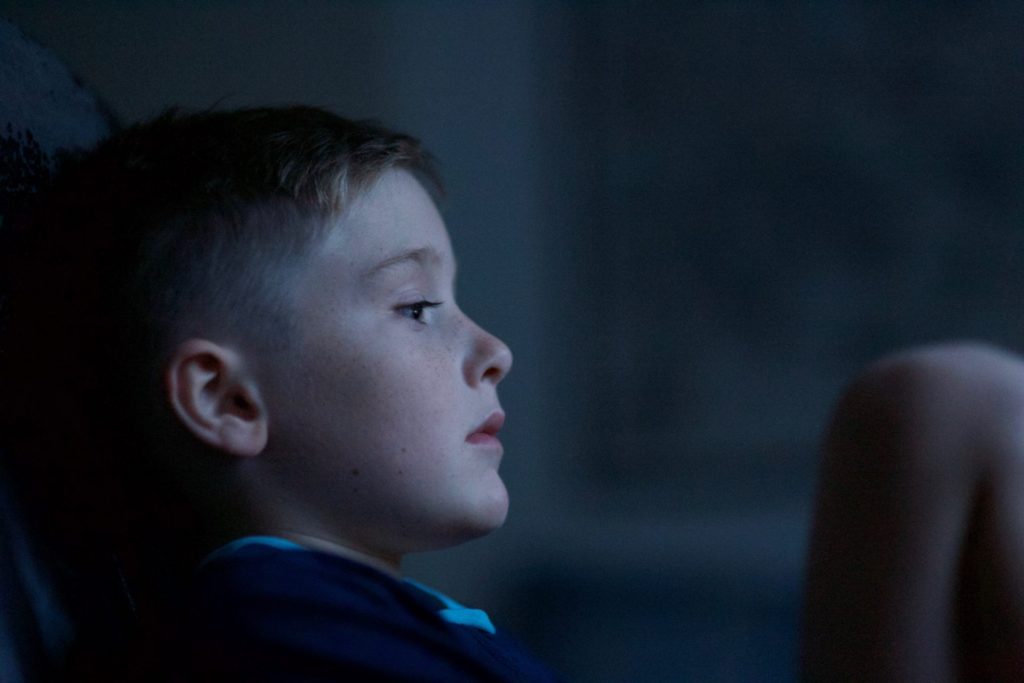
We breathe without thinking about it and it is automatic for our bodies to do it. When we are about to do something scary, we often take a deep breath. So, teaching your child breathing exercises that they can do daily can help the mind and body relax, it also reduces pain in the body, and can refocus the mind. The breathing technique is taught to simply give them pause and to curb the physical manifestations of anxiety, such as sweaty palms, twitching hands and feet and a racing heartbeat. Do this exercise with your child. It can be done anywhere and at any time. Breathing helps clear the mind and helps focus on what is happening physically and mentally to their body which, in turn, reinforces itself as behaviour. Once they can identify their rhythm and pattern, the better they will become at dealing with the symptoms.
Seek professional help
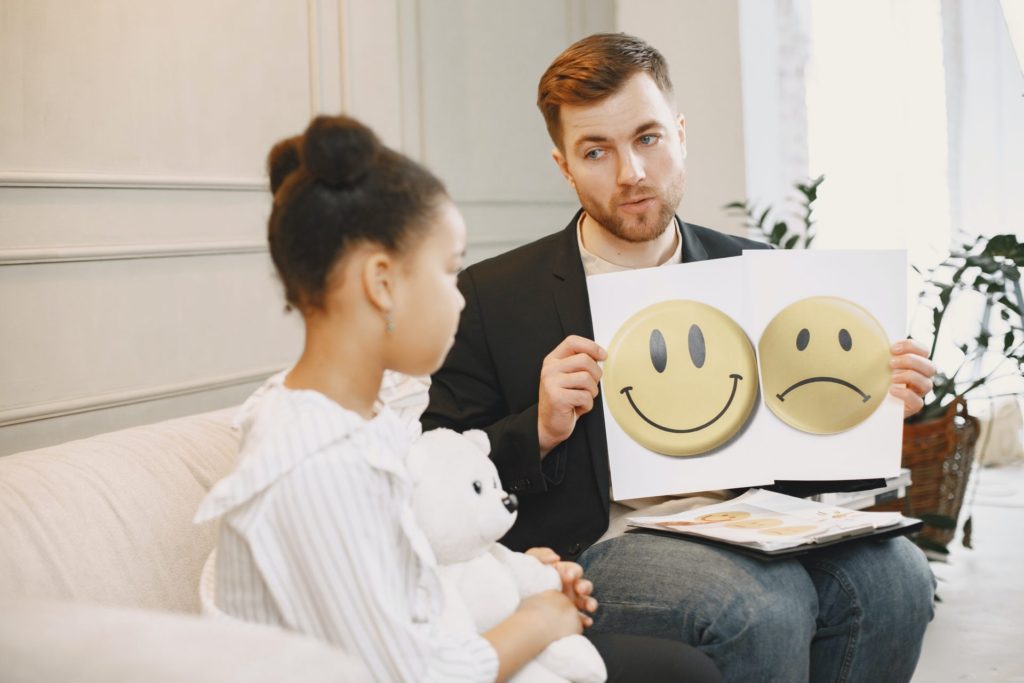
Help is always there when we need it – all we must do is to seek it out. That said, this might be the most difficult part. Where to begin? Finding a professional to partner with and help you, your child, and your family. This does, however, involve a lot of research and depending on the severity of your child’s anxiety, he or she would either need to see a therapist, psychologist, or psychiatrist.
Each one of these professions can provide the support you may need and sometimes the anxiety must be treated with a combination of therapeutic techniques and prescription medication. In which case it is only a psychiatrist that can prescribe medication. So, it is advisable to do the initial screening before settling on a course of treatment. There may be some trial and error involved, which in and of itself facilitates anxiety for everyone involved.
Anxiety disorder is a blanket term because each type of anxiety has its own set of symptoms and therefore its own treatment programmes. There is no magic checklist that one can follow unfortunately. Be open to all possibilities and do what you can with the knowledge that you have and then some.
The scariest thing to do as a parent is to allow your child to make their own mistakes and live with the consequences of their choices. However, it’s the one thing as a parent you must do for your child in order for them to grow and develop into the confident and successful adults we so dream for them to be.
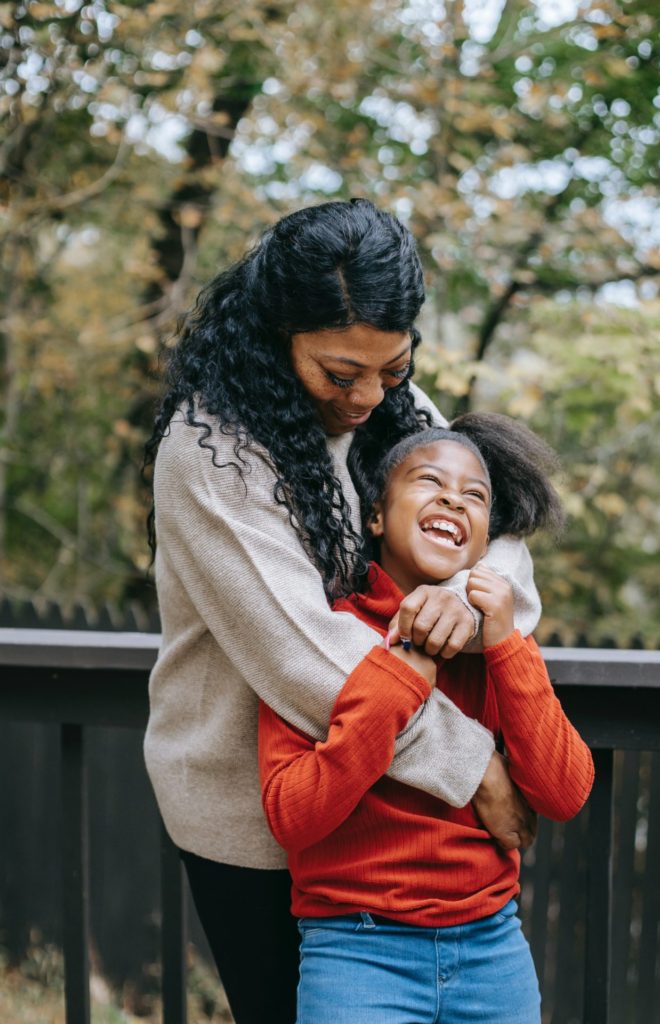
Helpful links for parents to help their child who is suffering with childhood anxiety disorder:
Normal and Abnormal Fear and Anxiety in Children and Adolescents
Should my child see a Therapist, Psychologist or Psychiatrist
